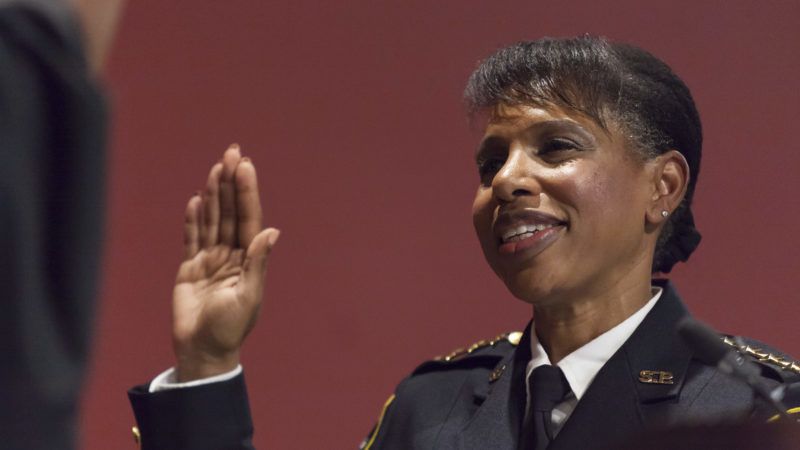Seattle Police Chief Tells People To Call 911 If They Hear 'Racist Name-Calling'
Don't the authorities have better things to do with their time right now?

Seattle's top cop may want to get her priorities straightened out. In the midst of the global COVID-19 pandemic, Police Chief Carmen Best used her most recent "chief's brief" update on the coronavirus crisis to urge residents to dial 911 if they are the victims of racist name-calling.
It's a time-wasting imperative—and one that's at odds with the First Amendment.
In her briefing, Best called upon the expertise of a former local news anchor, Lori Matsukawa.
"Hate crimes have no place in our community," said Matsukawa. "We are all trying to deal with the COVID-19 public health crisis together. If you are a victim of a hate crime or hate-based harassment, please call 911."
"We will document and investigate every reported hate crime," Best continued. "Even racist name-calling should be reported to police. If you aren't sure if a hate crime occurred, call 911. We are here to help."
Washington State is no place for hate. In a show of solidarity, @LoriMatsukawa joined me to remind everyone that hate has no place in our community. Report hate, including racist name calling, to 911. We are here to help, and will respond to investigate. #WeGotThisSeattle pic.twitter.com/cFGkYopbVW
— Chief Carmen Best (Ret.) (@carmenbest) March 31, 2020
This is unhelpful guidance that conflates two completely different things. A hate crime takes place when a person, motivated by animus, engages in criminal activity against a protected class. Importantly, the underlying action has to be criminal in nature: vandalism, assault, etc. Mere speech is not generally criminal, except in a few special cases (true threats of violence, for instance). Racist speech could be an element of a hate crime conviction, but engaging in racist speech is not itself a criminal action. In fact, hateful speech is clearly protected under the First Amendment, according to Supreme Court precedent.
Telling people to report racist name-calling to the police is thus bad advice. At best, it's wasting police officers' time. But it can actually lead to far worse consequences: Inviting the police to intervene in speech-based disputes between people is a recipe for disaster. Teachers, counselors, and parents, for instance, could reasonably interpret Best's remarks as an obligation for them to call the cops on kids who use derogatory language. Over-criminalization of teenage misbehavior in schools is one result of the mindset that people—even kids—causing each other offense ought to be a matter for the police to handle.
In any case, it does not inspire confidence when Seattle's top law enforcement authority uses her crisis platform to blur the important distinction between hate crimes and hateful speech. (Seattle PD did not respond to request for comment.)


Show Comments (188)